The Society for Marine Mammalogy (SMM) is now accepting proposals for projects under its new Conservation Fund. Proposals for up to US$25K can be submitted between now and 31 July 2021. Proposals should be focused on projects that can catalyze real conservation action for the world’s most endangered marine mammal species. Details on the application process can be found here. Proposals will be judged by the SMM Conservation Committee and Committee of Scientific Advisors and awards will be announced at the SMM member’s meeting at the Marine Mammal Conference in December.
Category Archives: President’s Blog
SMM Conservation Committee Welcomes a New Chair
The Society for Marine Mammalogy’s Board of Governors is excited to welcome Dr. Eduardo Secchi to the Board as the newly appointed chair of the SMM’s Conservation Committee. Dr. Secchi will be taking over from Dr. Barb Taylor who has overseen the SMM’s conservation actions since the committee’s creation.
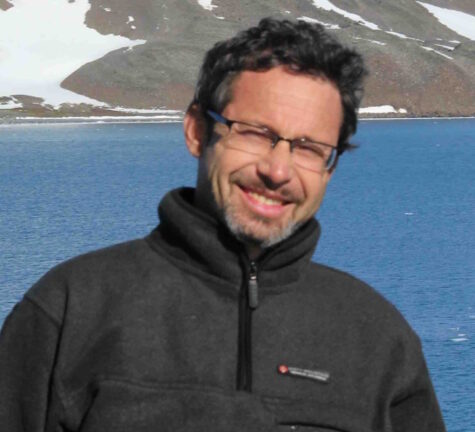
Dr. Secchi has a long history in marine mammal science and conservation. He graduated in Oceanography at the Federal University of Rio Grande (FURG) in 1991. He did his Masters in Biological Oceanography (FURG, 1999) and PhD in Zoology (University of Otago, New Zealand, 2006). After completing his dissertation he became the Associate Professor in the Oceanography Institute at FURG to lead the Marine Megafauna Ecology and Conservation Laboratory with a primary focus on the ecology and conservation of marine mammals and turtles. Dr. Secchi is now the Dean of Research and Graduate Studies at FURG.
His commitment to marine mammal conservation goes beyond that of just working with students and collaborators. He is a member of the IUCN Cetacean Specialist Group/Species Survival Commission and acts as the advisor to the Brazilian Ministry of Environment and Ministry of External Affairs on International Commissions such as the International Whaling Commission (IWC), the Committee for Environmental Protection of the Antarctic Treaty Consultative Meeting (CEP/ATCM), and the Convention for the Conservation of Antarctic Marine Living Resources (CCAMLR).
Each candidate for the position provided a brief statement of their vison for the Conservation Committee and the SMM, more generally. Dr. Secchi’s hopes are that the SMM will continue on its path to become a global reference on the conservation of marine mammals and invest in the development and engagement of a new generation of scientists. The SMM’s efforts must turn towards actions to reverse declines observed in many species, especially in developing nations. He especially emphasized that, “… conservation must always take into account social vulnerability of the human communities sharing resources with marine mammals.”
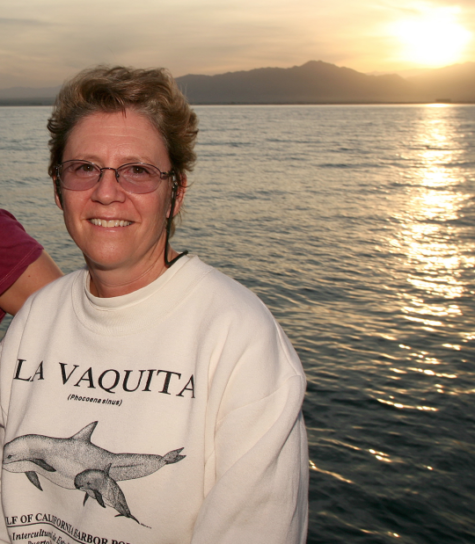
As we welcome Dr. Secchi, we must simultaneously thank Dr. Taylor for her many years of work leading the Conservation Committee. She nurtured a nascent committee and built a team of engaged marine mammal conservation scientists to help advise the SMM on species in crises around the globe. There are few marine mammal conservation issues that Dr. Taylor has not been involved with in some capacity and she is committed to learn from each experience to build a stronger foundation for conservation in the future. This is exemplified in her recent efforts, with a team of collaborators, to help fight future cetacean extinctions through the use of ex situ options for cetacean conservation.
Few in our field have the breadth of marine mammal conservation experience as Dr. Taylor and we are thankful for her continued commitment to the SMM. While she is stepping down as chair of the committee, she will be remaining with the group and sharing her experience with the team and the SMM Board of Governors.
Thank you Barb and welcome and good luck Edu!
To contact the SMM Conservation committee please email conservation@marinemammalscience.org.
Click on the links below if you are interested in reading some of Dr. Secchi’s and collaborators’ more recent publications in Marine Mammal Science.
Age structure of strandings and growth of Lahille’s bottlenose dolphin (Tursiops truncatusgephyreus)
Gratitude for Dr. Doug Wartzok
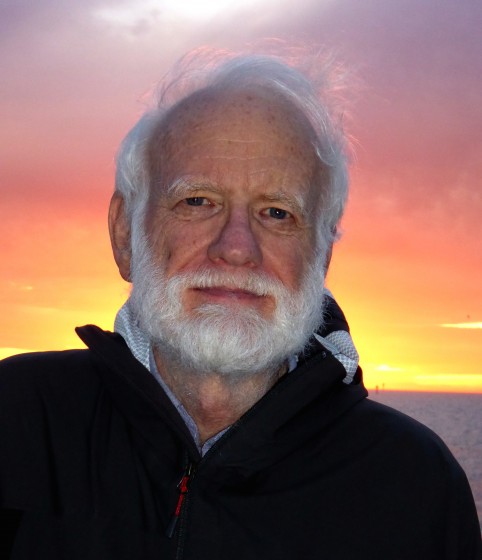
Greetings SMM members and global marine mammal community. I would like to bring attention to the change in leadership of our Committee of Scientific Advisors (CSA) that was announced in our recent newsletter. Dr. Doug Wartzok, after 11 excellent years as Chair of the CSA, is handing over the reins to Dr. Laura May-Collado. In total, Doug has given two decades of himself to the Society Board and our membership. Doug has been with the Society since before it was a society and is one of a relatively small cohort of founding members. He has always sought to serve the community he helped create – either as the Editor for our flagship journal or Chair of the Committee of Scientific Advisor. His long experience with the Society eased the entry of every President he has worked with and provided a steadying hand for our growth as we honor our history and adapt to our future. Doug is always engaged and ever-thoughtful on every topic tackled by the Board. And he is relentless in his support for fostering high-quality science within our society.
All of our board members, past and present, are unsung heroes who give willingly of their time and energy to help the SMM grow and evolve the way in which we support our members and the science and conservation they undertake. There are few, however, that have given as much (and continue to give) as Doug Wartzok. Thankfully, Doug isn’t straying too far as he leaves the CSA. He has kindly agreed to step in to lead our Ad Hoc Archives Committee. If you see him in the future, please thank him. He has been working hard for all of us for decades and you quite possibly never knew it. Many thanks Doug!!
And thank you to Dr. May-Collado for stepping up to this important position and for being willing to help shepherd the good work of the CSA!
Congratulations to our Inaugural Group of Society for Marine Mammalogy Fellows
Two years ago, the members of the Society for Marine Mammalogy (SMM) voted to establish a Fellows membership category. This “Fellow” designation is for members who are recognized by the Society and its membership as having “rendered conspicuous service or made truly notable contributions to the advancement and diffusion of the knowledge of marine mammal science or the fostering of its practical applications through conservation of marine mammals.”
Some of our members make great contributions conducting or supporting good science. Others are amazing educators and communicators helping to foster a better understanding and appreciation of marine mammal science and conservation. Some may be champions of conservation. They may be at any stage of their career and from anywhere in the world. What links them is excellence in what they do, impact to our field, and being a member of our SMM family. They are nominated by their colleagues and reviewed by their peers.
We have completed the first round of selections for our inaugural class of Fellows but before I announce them, I would like to thank the hard work by all involved in the conception, development and implementation of this program. It took many hands to make this happen but I would like to call out two people in particular. Drs. Cecile Vincent and Doug Wartzok did an enormous amount of work behind the scenes, and sometimes in front of a camera (thank you Doug!). I also want to thank the nominators and writers of recommendation letters who invested the effort to honor their colleagues and friends.
Now, it is my great pleasure to welcome our first class of SMM Fellows. The 2021 SMM Fellows Are (alphabetical order by last name):
Dr. Dan Costa: For pioneering work in field physiology, biologging development, and global syntheses, and for training the next generation of marine mammalogists.
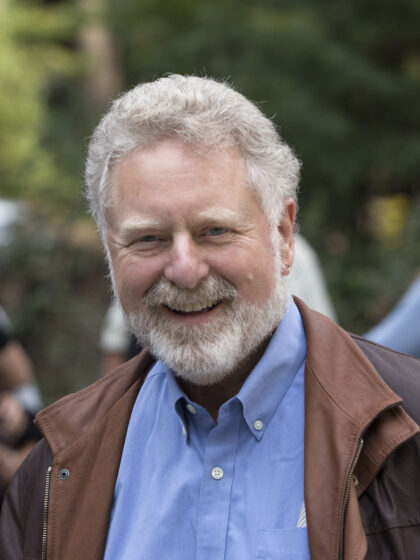
Dr. Enrique “Kike” Crespo: For contributions to the knowledge and conservation of the marine mammals of the Patagonian Shelf.
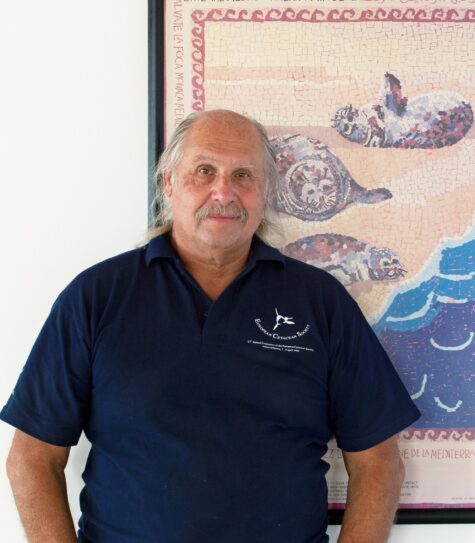
Dr. Ailsa Hall: For being a leader and role model for Women-in-STEM, for contributions to understanding disease pathology and spread in marine mammals.
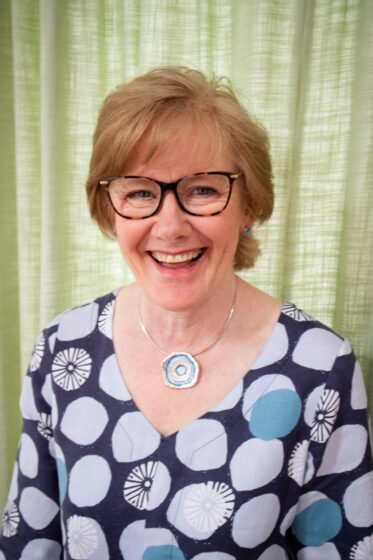
Dr. Janet Mann: For efforts to improve the participation of women in marine mammal research and contributions to longitudinal studies of dolphin behavior.
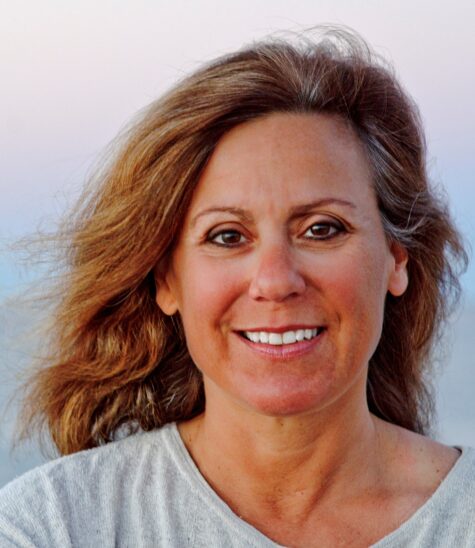
Dr. Joy Reidenberg: For cetacean sound production research, and teaching the world about marine mammal anatomy through television documentaries.
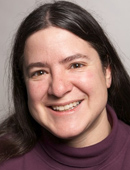
Suzanne Yin: For the consistent collection of high quality cetacean abundance and behavioral data.
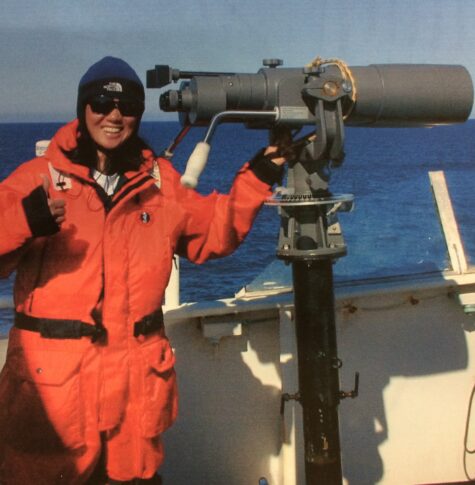
Congratulations to you all for this well-deserved honor. Our new Fellows will comprise the next Fellows committee and will help shepherd the next round of nominees. For those interested, we will be announcing our next call for Fellows nominations later this year and we hope to see packages that represent expertise from all corners our of community!
Holiday Greetings and An Important Ask from SMM President, Charles Littnan
2020 has been a testing year for all of us. It has also been hard for non-profits, such as the Society for Marine Mammalogy, as charitable donations have declined while the world navigates financial uncertainty. These donations fund some of our most vital functions like supporting student travel, small grants in aid of research, and our many awards. But if there is one thing that we have learned this year, it is the importance of togetherness and giving in face of adversity. To our members from the United States, you have a unique opportunity to support our global marine mammal community.
We want to take a moment to inform you about Section 2104 of the CARES Act, which allows donors to deduct cash donations up to $300 without needing to itemize deductions for the 2020 tax year. If you are interested in supporting the SMM through a charitable donation, we the SMM Board and all the members you help, would be incredibly grateful. Please review the linked article that outlines a 100% tax benefit for those donating prior to year’s end. It probably goes without saying but I am required to mention – I am not qualified to give tax advice. Please consult tax professionals for more details.
Help support our awards, grants and programs with a tax-deductible donation toward the program of your choice here.
Discussion Panel on Unpaid Positions in Science
Dear Colleagues,
We all agree that our marine mammal community, and science in general, benefits from increased diversity. We all agree that barriers to diversity and inclusiveness, where they exist, should be dismantled.
In July 2020, the SMM received a petition requesting that the Society no longer post unpaid positions on our job board, as they contribute to inequity. This petition created an opportunity for important dialogue and consideration of the issue to occur. One of the most positive actions we can take is to facilitate this dialog further and include our membership to the greatest extent possible. To that end, we host an online forum with a variety of participants and perspectives on this issue on 25 November 2020 at 8 PM EST. This will be a moderated online discussion that will be archived for future watching.
Over the past few months, our colleagues in North America, South America, Asia and Europe have gathered insights and information from around the globe regarding the subject of unpaid positions in marine mammal science and how they help and hinder equity in the field. During this 1-hour panel, followed by a Q&A session, our moderators and panelists will share their collective insights and we will continue this discussion in a format designed to be accessible to our diverse global community. Panelists include: Eric Archer, Tara Cox, Auriel Fournier and Diane Gendron
Please join us on 25 November 2020 at 8 PM EST for this forum. Participation is open to everyone. Registration is required to participate in this event and it is free to attend.
Link to register:
https://zoom.us/webinar/register/WN_9l04R8i5TFGenQ2HrZhljQ
We know that the timing will not work for all of our widespread members and we will be taking steps to address that. The conversation will be recorded and archived so our membership who can’t attend will be able to watch at their convenience. The panel will also respond to follow up questions that come from these delayed viewings. Most importantly, this is not the end of the conversation, merely the next step in our growth as a professional society.
About the Facilitator and Panelists:
Facilitator:
- Eric Archer, PhD is currently head of the Marine Mammal Genetics Program at the NOAA Southwest Fisheries Science Center in La Jolla, CA. He is also co-chair of the ad hoc Diversity and Inclusion Committee in the Society of Marine Mammalogy. He is interested in paying forward the opportunities he has received and helping to open doors to a wide array of people with a curiosity for marine science.
Panelists:
- Tara Cox, PhD is a Professor of Marine Sciences at Savannah State University and currently serves as Secretary and co-chair of the ad hoc Committee of Diversity and Inclusion for the Society for Marine Mammalogy. She has had paid and unpaid interns work in her lab.
- Auriel M.V Fournier, PhD is the Director of Forbes Biological Station and an Assistant Research Scientist, Wetland Bird Ecologist with the Illinois Natural History Survey. In addition to her work as an ornithologist, ecologist she studies and publishes research on how unpaid labor impacts scientific career paths.
- Diane Gendron, PhD is a professor and researcher on cetacean ecology with a particular focus on monitoring blue whales in the Gulf of California and promoting conservation of the Northeastern Pacific population. She accepts seasonal unpaid interns to work with her program in Mexico and provides them with partial support during their time in the field.
- Cindy Peter, Msc is Coordinator of the Sarawak Dolphin Research Project, based at the Institute of Biodiversity and Environmental Conservation, Universiti Malaysia Sarawak, where she is also a Lecturer. Currently the Member-at-Large for SMM, Cindy ran for the position to contribute as a voice for members from the developing nation and to increase inclusion of Asians in the Society.
While we encourage an open, transparent, respectful discussion above all, for those who prefer to remain anonymous, questions can be asked anonymously via the Q&A feature in the Zoom meeting, and we have also set up an anonymous comment box (here) for you to leave comments or questions prior to or during the forum.
Thank you for being a part of this important conversation.
Eric Archer and Tara Cox
Co-Chairs, Ad hoc Committee for Diversity and Inclusion
Society for Marine Mammalogy
diversity@marinemammalscience.org
SMM Changing Policies to Allow for Stipends in Small Grant in Aid of Research Program
The Society for Marine Mammalogy is pleased to announce a substantive change to its Small Grant in Aid of Research (SGIAR) program. Beginning with the 2021 funding cycle, applicants can request a portion of the award to be allocated as a stipend. Specifically, SGIAR guidelines now allow applicants to provide “a detailed one-year, itemized budget identifying and justifying specific requests for equipment, supplies, travel to field site, operational expenses, and up to 25% of the total budget as stipend. Total budget is not to exceed US $2,000.”
The Society thanks SMM member Dr. Eiren Jacobson for raising the broader issue of unpaid internships. The petition she and other colleagues initiated was signed by a number of members of the Society, including several members of the Committee of Scientific Advisors which administers the SGIAR program. As part of of a larger policy review being undertaken by the SMM Board, the Committee of Scientific Advisors took up the discussion of allowing stipends to be included in SGIAR. The goals of the SGIAR program is to provide both intellectual and financial support to early career marine mammal researchers in countries where they have less access to research funds, the committee decided 25% of the total budget was a reasonable first step, and one that will be reviewed after SGIAR funding cycles are completed in 2021-2022. The Committee takes very seriously its assignment to provide feedback to both successful and unsuccessful applicants on all components of the proposal—significance of the research to be performed, methods for conducting the research, proactive rather than post-hoc methods of analyzing the research, a clear understanding of where the proposed research fits in the broader scientific landscape, and a comprehensive budget for successful accomplishment. The Committee obviously wished that there were greater resources available with which to be even more responsive to the intent of the petition and the Board will be determining future funding levels as part its strategic planning process. Note that while travel to conferences is not an acceptable component of the research budget, the Society has adopted a policy whereby any SGIAR recipient who is presenting the work supported by the SGIAR program at a subsequent SMM Biennial Conference will receive a minimum of $500 toward travel expenses to the conference.
The Society Board of Governors concurred with the recommendation of the Committee of Scientific Advisors and implemented the policy as stated above. More information on the SGIAR can be found here.
SMM Strategic Planning
Aloha SMM Members-
The Society for Marine Mammalogy began its journey some five decades ago. Our first focus was bringing marine mammal professionals together on a regular basis to share our science- thus our biennial conferences were born. Following that publication of Marine Mammal Science, our flagship science product, was started to disseminate our science to the world. Over the years, our membership has grown as has the number of services we provide. These include small grants in aid of research, student and international researcher travel support, a variety of awards, presidential letters on conservation issues, ethics reviews on research, podcasts, and much more. All of these with the intent to improve the science and conservation we do, promote the exchange of ideas, and build a more global and inclusive membership.
The need for a strategic plan
This evolution has largely been organic and done one piece at a time. The SMM is now older and larger and we are facing a number of challenges, needs and opportunities that stand between us and being of greater value to our members and the animals that bring us all together. Many of these opportunities to improve or provide more support to our members require financial investment of our relatively limited resources. So, we must be strategic and prioritize the most important actions moving forward. To do this we are going to tackle our first ever strategic plan. Some of you might not be familiar with what strategic plans look like. Here are examples from other scientific societies such as the Society for Conservation Biology or Ecological Society of America. Our ambitious plan will be to have a final draft of the strategic plan ready for membership vote for our April ballot.
Get involved
We want to include the membership in multiple steps of this strategic planning process. This has to be OUR plan so please help to shape it. Please share your ideas for goals and actions that the Society should undertake. Goals and actions are defined as:
Goal: This is generally a higher level objective that would have several more specific actions nested underneath. While it should be broad it must be concrete and achievable.
Example: Increase the accessibility of our Society and Science.
Action: This is a very specific and measurable activity that helps to achieve the goal it is intended to support.
Example: Move all or part of the biennial conferences into a digital format to allow for greater participation globally.
We would like to capture a long list of ideas from the membership to help us find common themes and actions. You can submit your ideas in the comments below or by email. This page will always remain open for submission but we would like to encourage people to share their ideas by September 14, 2020.
The second way to participate is to volunteer to help with the strategic planning team. Once we have settled on some priority goals we will be identifying actions, measures of success, and timelines. Many hands make light work and this is a great opportunity to help shape the future of the SMM. For everyone that has been asking how to get involved, well here is your chance. If you are interested in participating send me an email with a short description of your particular interests. We may not be able to accommodate everyone depending on the level of response.
Thank you in advance for your contributions. If you have any questions please comment below or email me.
Be safe, be well.
Charles
Twitter: @himonkseal
Update on the Society’s Virtual Conversation on Unpaid Internships
Aloha Everyone-
Just wanted to post a short update to let you know that the planning is still going on for the our digital meeting to continue the conversation on unpaid internships. My original hope was to have it happen in August but we have passed that deadline. We have pulled together most of the panel who will cover several perspectives and now just finalizing details and timing. The Board and our various committees have also been very busy reviewing and identifying updates for several of our policies. We will be sharing those updates very soon.
I thank all of you that continue to discuss this and other challenging topics and our SMM board and committees who are approaching this so thoughtfully.
As always feel free to comment below or reach out to me with questions and comments.
Be safe, be well.
Charles
president@marinemammalscience.org
Twitter: @himonkseal
Update Regarding Petition Related to Unpaid Internships
I wanted to put out a quick update on behalf of the Society for Marine Mammalogy Board regarding the petition related to unpaid internships and the subsequent discussion on MARMAM and beyond.
It is encouraging to see ongoing dialogue and the evolution of various positions as more voices and perspectives engage on the issue. At the core we all agree that our marine mammal community, and science in general, benefits from increased diversity. We all agree that barriers to diversity and inclusiveness, where they exist, should be dismantled. The challenge we face is finding agreement on what the ‘right’ course of action should be and which action should come first. The initial dialog on internships quickly moved to two perspectives: one being that unpaid internships were the barrier that needed addressing, and the other that a focus on underrepresented groups throughout the marine mammal science career pipeline was the necessary action. Thankfully, the discussion has continued to grow in nuance with greater acknowledgment that the pipeline is broken in many places and each spot needs focused attention. This is an issue of “and” not “or” – it is both unpaid internships AND lack of access in early education (and so much more) that contribute to the struggle to achieve greater diversity in our field.
The SMM has just received the petition, and it will feed into the Board’s ongoing deliberations on this important and multifarious issue. The Board is reviewing the online discussion and available literature, reaching out to a broader cohort of our community, and looking across other professional societies to see if and how they have addressed similar concerns. After this initial process we will work with our membership to find what action by the SMM is in our purview and could address this issue in a meaningful and responsible way.
One thing is certain though: one of the most positive actions we can take is to facilitate this dialog further and include our membership to the greatest extent possible. To that end, we will soon host an online forum with a variety of participants and perspectives on this issue. This will be a moderated online discussion that will be archived for future watching. Our intent is for this to happen in mid-August.
While across our community there may not be 100% agreement on the issues raised in the petition or some of the responses to it, I believe we should thank those who have started the discussion and those who have stepped up to respond. This is how our marine mammal society will grow and advance – by asking hard, and oftentimes uncomfortable questions and taking necessary steps to improve. We best serve our community and the animals we study by being open to these discussions, self reflective about our roles and perspectives, and willing to evolve when necessary.
More information, including ideas for specific actions, will be coming soon. If you have thoughts you would like to share directly with the Board please feel free to email me at president@marinemammalscience.org or contact our Diversity and Inclusion Committee co-chairs at diversity@marinemammalscience.org.
Be safe and well.
Charles